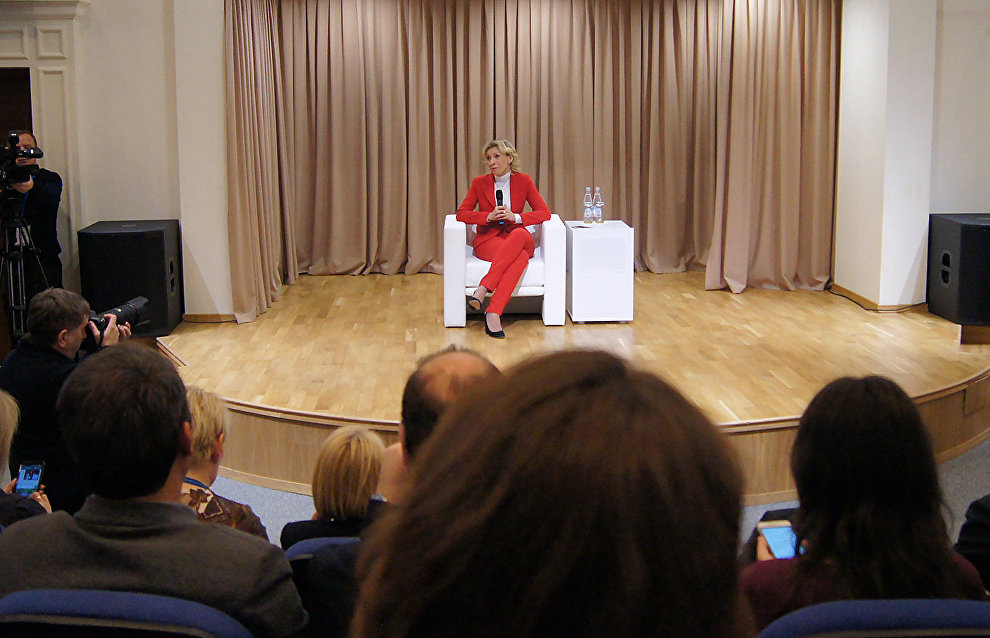Maria Zakharova holds briefing in Salekhard
Foreign Ministry Spokesperson Maria Zakharova has held a briefing as part of the International Circumpolar Mass Media Congress Arctic Media World (Salekhard, western Siberia). She answered questions from the Arctic agenda.
One of them concerned the possibility of the militarization of the Northern Sea Route. Zakharova said Russia believes that the Arctic has always been a region of peace and mutual understanding, a geopolitical reserve where the possibility of militarization must not be even considered. She also noted that NATO is Russia's direct neighbor in the Arctic and is widely represented there.
Maria Zakharova pointed out that Russia must protect its Arctic border and that the country is revamping its defense capability within the historical context. She added that the Arctic is no place for aggressive experiments. Russia's neighbors are building up their military capabilities, but every country has a right to pursue independent foreign and domestic policies. What matters is the real goals they pursue.
Speaking on the subject of the environment, the foreign ministry spokesperson said that some companies try to settle their problems to the detriment of the environment or the traditional way of life of small northern ethnic groups.
In response to a question about the Ministry's influence on megaprojects such as Yamal LNG, Zakharova said that all such contracts are complemented with interstate agreements signed between various ministries because such contracts usually involve a great deal of contacts and hence visa and other kinds of support. The Foreign Ministry takes part in such projects, in particular, to facilitate the legalization or certification of documents.
Maria Zakharova said that the procedure for the accreditation of foreign journalists in Russia had not changed since the 1990s. She believes this is a positive thing because any foreign journalist knows what he or she needs to do to be able to work in Russia. She added that those who receive Foreign Ministry accreditation have the same rights as Russian journalists, whereas Russian journalists have had many problems with accreditation abroad. "For the past three years we have been trying to get information about the accreditation procedure [in the EU]. We have sent at least two diplomatic notes, so far without any response," she said.
The biggest problem in the international Arctic community is the increasing turbulence in international relations, which is having a negative impact on the once tranquil region where neighbors always had an opportunity to discuss their problems, if any, the Ministry representative noted. She also pointed out the dangerous trend of the erosion of some norms of international law. "If we unbalance the international law and do not comply with international agreements and such like, the erosion of international organizations will have an impact on everything else," Maria Zakharova said. She added that one possible outcome of this is the loss of trust, which will result in the revision of some interregional matters.
One of the journalists asked if we are heading towards a war. Zakharova replied that she receives this question almost daily at meetings and interviews and from her neighbors, friends and acquaintances.
"If I had a magic wand or a crystal globe, I would look into the future. Everyone in Moscow, including the president and the prime minister, know history. They are aware of our country's responsibility and are doing their utmost to prevent this [a war]. We rely on the precepts of peace," the Foreign Ministry spokesperson noted.
